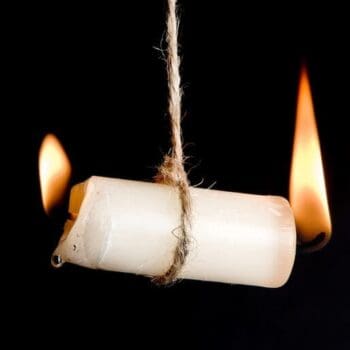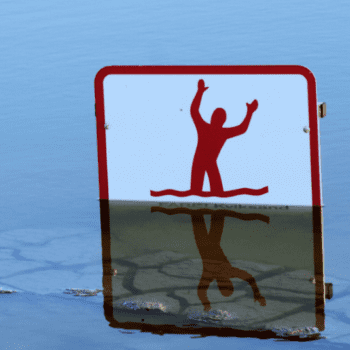 If you’re reading that headline and scratching your head, you’re not alone. But trust me, there’s a clear connection—especially in hospitality—and I can speak to both from personal experience. Spoiler alert: they both suck.
If you’re reading that headline and scratching your head, you’re not alone. But trust me, there’s a clear connection—especially in hospitality—and I can speak to both from personal experience. Spoiler alert: they both suck.
Hospitality’s double-edged sword: burnout and alcoholism
Saying that hospitality thrives on high stress, long hours, and being “always on” is like saying winters in Chicago are a bit chilly. It’s an understatement. It’s a pressure cooker environment. No wonder that both burnout and substance abuse are as common as salt and pepper in the hospitality biz.
The not-so-secret ingredients
Here’s what people dealing with burnout and alcoholism have in common:
- Denial: No, it’s not a river in Egypt. This attitude of “I’m fine, I just need to push through” doesn’t work.
- Neglect of self-care: Who has time for exercise or healthy meals when you’re pulling 14-hour shifts?
- Lack of boundaries: Work/life balance? That’s as much as a joke to us as a chef having weekends off.
- The “I can figure it out” mentality: Spoiler: You probably can’t without help, just like you can’t handle a 200-person service with one server.
And let’s not forget the collateral damage. With both burnout and alcoholism, it’s never just you that suffers. It’s like quicksand. It drags you, your team, your family, and your relationships into it. The effects ripple outward, and before you know it, you’re dragging others down with you. <
 How to spot burnout
How to spot burnout
- Are you constantly exhausted, no matter how much you sleep?
- Does the passion you once had for your work feel like it’s been sucked dry?
- Do simple tasks now feel overwhelming? For example, creativity was always a strength of mine. I could come up with great menu ideas easily. It was fun. When I was burned out, even that became a struggle.
If you answered yes to any of these, you might be heading down a dangerous path.
How to combat burnout
Fighting burnout is all about reclaiming control and balance, but that’s easier said than done in the high-pressure world of hospitality.
Here’s where to start:
- Set boundaries between work and personal life (yes, it’s possible—even in this industry). I learned (the hard way) that burnout isn’t necessarily from long hours, but by not setting boundaries. The inability to “shut off” after work, checking work-related emails or texts, or taking calls after work, etc.
- Find activities outside of work that bring you joy, like a hobby or just something fun.
- Prioritize self-care: exercise, meditate, take vacations regularly, eat healthy, and stop ignoring your own needs.
Quick note: Don’t view vacations as some magical band aid that’ll fix how you feel. A vacation will be more like flu medicine for the flu—temporary relief, depending on your level of burnout.
Even with boundaries in place, you can’t neglect self-care
When I was deep in the burnout/alcohol cycle, healthy habits disappeared faster than a fart in the wind. My diet was crap, so I gained 50 pounds. I was depressed and had a drinking problem.
It happens to the best of us. Life will throw you more unexpected surprises than special orders in the middle of a Saturday night rush. Then, suddenly, all the healthy habits you worked so hard to build fell apart.
Instead of turning inward, I sought relief externally through unhealthy vices. I’d finish my usual 12- to 16-hour day starving because, while I was hungry, the last thing I wanted to do was eat because I had been looking at food all day. I just wanted to get the f**k out of work, hit the bar, and have my ‘dinner,’ which was often a shot of tequila with a vodka chaser.
But here’s the thing: it’s during those tough times that self-care matters most. I can’t count how many times clients have told me they’re too busy to commit to their personal development. My reply is always the same. “So, what you’re saying is your personal growth and development really depends on your schedule, right?” Usually they are scratching their heads after that comment. Anyone can manage their schedule when life’s smooth sailing, but when the storm hits, those routines are your life raft.
No matter how chaotic things get, focus on what you can control:
- What you put into your body.
- Getting enough sleep (turn off the phone, the emails can wait—your beauty rest is more important than that 2 AM text about tomorrow’s produce order).
- Staying active (even a short walk helps—think of it as mise en place for your mental health).
- Maintaining basic routines (like eating regularly—yes, that means actual meals, not just french fries sitting under the heat lamp).
OK, let’s talk about setting boundaries—something that was incredibly hard for me to do. In hospitality, the to-do list always feels never-ending. How many times have you said, “Just 15 more minutes,” only for that to stretch into an hour and a half?
Those extra minutes turn into missed moments—your kid’s events, time with your partner—and when you’re finally home, you don’t feel present because your mind is on work.
This can slowly erode your relationships, and I’ve seen it happen time and time again. A client once told me, “I worked insane hours for years, and it hit me that I’d missed 10 years of my son’s childhood. The guilt is crushing and now I’m scrambling to make up for lost time. I don’t want this to be the legacy I leave behind.”
The biggest similarity: you don’t notice until you’re in the weeds
The thing with both burnout and alcoholism is that they don’t hit you all at once. It’s not like a kitchen fire you can quickly extinguish—it’s more like a slow simmer that, before you know it, turns into a full boil, spilling over and creating chaos.
One of the scariest parts? You don’t realize what’s happening until you’re neck-deep, suffocating under stress, relying on bad habits, or completely disconnected from what used to matter most. It’s like being in the weeds during a dinner rush—you think you’ve got it handled, but suddenly you’re buried.
I remember the moment I realized I had a drinking problem. Yeah, I saw little signs of a problem here and there but didn’t acknowledge how bad it was until it hit me. It was like, oh damn, how did this get so bad?
 Conclusion: it’s time to change the menu
Conclusion: it’s time to change the menu
However you’re feeling doesn’t have to be that way. Recognize the signs, set those boundaries like they’re the last wall between you and a health inspector, and prioritize self-care like it’s the secret ingredient to your signature dish.
I know this has been a realllly uplifting read for you, so let’s end on a happy note. When you’re going through some of this crap, it’s easy to feel trapped, like there is no way out. You feel defeated, isolated, and helpless. There is a way out. I found my way out, and I am in better physical shape and healthier at 54 than I was at 34. Life is great.
At the end of the day, you’re the head chef of your own life. Don’t let burnout or booze be the ones calling the shots.
Your future self will thank you, and that’s a tip worth more than any Michelin star.


 How to spot burnout
How to spot burnout  Conclusion: it’s time to change the menu
Conclusion: it’s time to change the menu 











